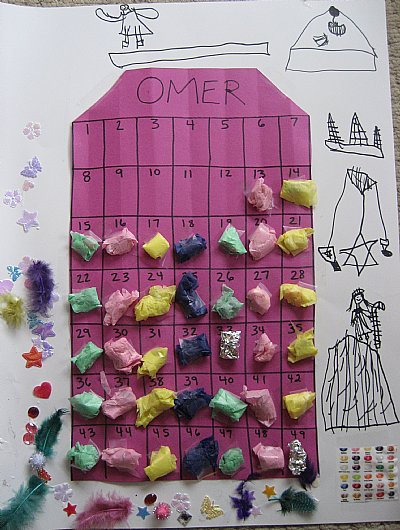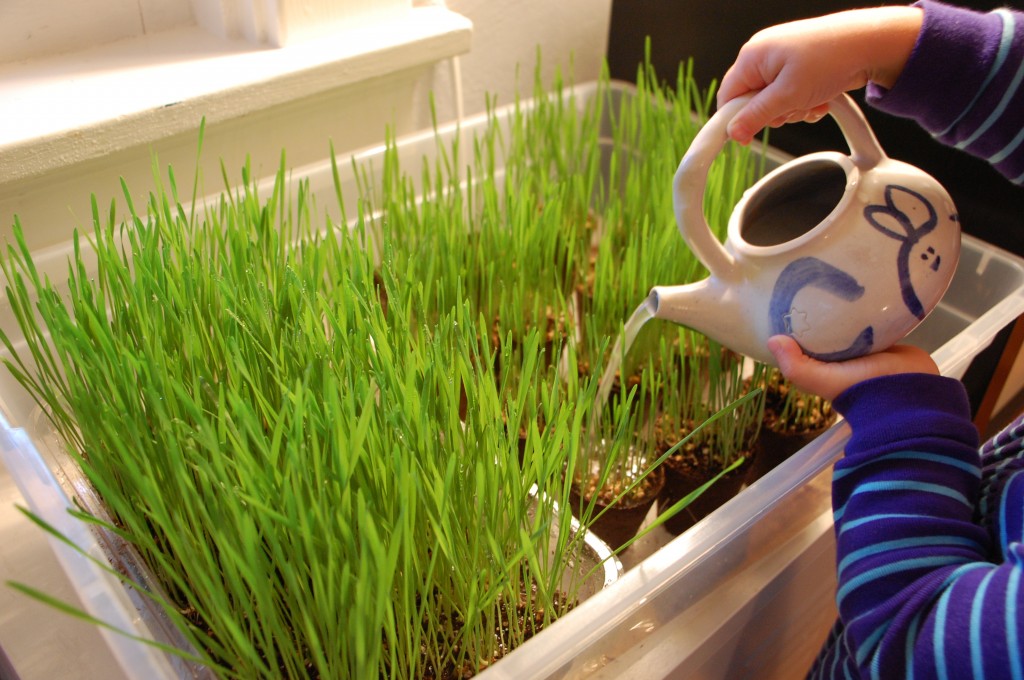For details about how to count the Omer, including a blessing in Hebrew and English, start with this video from BimBam.com.
Parents do a lot of counting aloud. We count bites of healthy food, minutes left for clean-up time, and of course the seconds before shouting “Ready or not, here I come!” Counting aloud is a practical way to get things done, but it’s also a great educational practice; it supports children’s numeracy much like reading aloud supports their literacy.
An ancient Jewish tradition, known as “Counting the Omer” or Sefirat HaOmer, is another number-rich opportunity with lots of extra benefits.
Originally, Counting the Omer was tied to the grain harvest in ancient Israel. The counting began on the second day of Passover, near the start of the barley harvest, and ended on Shavuot, approaching the conclusion of the wheat harvest. The Israelites brought grain offerings to the Holy Temple in Jerusalem at the beginning and end of the counting.
Although the Holy Temple is no longer standing and most of us are not grain farmers, Jews still traditionally count the Omer aloud each day. It’s a way of connecting to the Jewish calendar and building excitement for the upcoming festival of Shavuot, which celebrates receiving the gift of Torah at Mt Sinai.
Interested in giving it a try? One simple way is to print out a chart, or make your own with your children (bonus: number writing practice!) and mark off the days as you go. (See today’s count at the top of this page.)
Download Your Chart
Edible Omer Counter

Image via Homeshuling.wordpress.com
Want to add a little extra joy to your counting? Create a candy-filled Omer chart, like this one at Homeshuling, inspired by the Christmas tradition of Advent calendars.
Winter Gardening

Image via Tinkerlab.com
Want to connect with the agricultural origins of this practice? Plant wheatgrass indoors at the start of the Omer period, and track its progress over seven weeks on a chart or journal.
Middot Omer Calendar

Image via Kveller
The Kabbalists were ancient Jewish mystics who saw the Omer as a time for introspection and self-improvement. Just as the ancient Israelites had to prepare themselves to receive the Torah, we can focus on our own character development during these seven weeks. Consider choosing a Jewish value for each day, or each week, as a conversation prompt. Download your own calendar on Ritualwell.
And in case you were wondering – yes, there’s an app for that.
Download the App
April 19, 2017